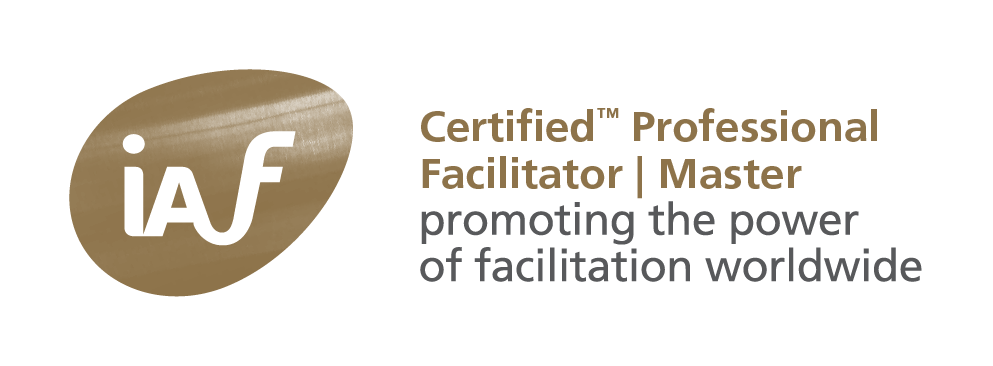commenting on https://robertreich.substack.com/p/the-gops-integrity-death-cycle/
Actually, the cyclical nature of nature is …. life –> death –> life –> death —> … You cannot have the one without the other AND they seem to deny each other. It’s the paradox of life: death giving meaning to life.
The structure of what’s happening (not only in the GOP and the US) has been described by Kenwyn Smith and David Berg in “Paradoxes of Group Life”. They describe three big paradoxes “living” in groups, creating and sustaining dynamics that both move and paralyse people.
When I look at the current political systems: they’re all dying. Democracy, autocracy, theocracy, monarchy, bureaucracy (think “EU”), oligarchy (multinationals, like “the seven/six/five/… sisters”) … all struggling with themselves and each other. Communism, socialism, capitalism, … all failing. All religions are suffering, except perhaps those that put suffering at their core, hearth, centre ….
Paradoxes are hard to understand in our western way of thinking: they are excluded or defined as “dilemma’s”. A paradox is not, “either way you damned”. A paradox is both the one and the other; but not at the same time. Every choice invokes the choice not made. And one cannot not choose. Distinguishing induces paradox.
The sure sign of a paradox at work is what’s called a vicious or virtuous cycle.
Paradoxes are not problems, because they cannot be “solved”. Nor are they “sticky problems”. Like energy, paradox is conserved. The one just induces another one, like heat being converted into motion and motion becoming – in the end – heat again.
Paradox is excluded from religion, as God cannot be paradoxical. I’ll make an exception for the Greek gods: they embody paradoxical behaviour. Also, the Greek play writes understood the tragedy of democracy.
Paradox is excluded from (western) science. I studied physics and recognizing paradoxes for what they are is not done. I hardly got away with it. Because with physics, in the end, a conclusion appears that this universe exists because I observe her and she observes me.
Paradoxes are excluded in
Justice – “he who’s innocent may cast the first stone” -,
Politics – “being neutral means you’re not with us”- ,
Economy – in The Netherlands we’ve got a “free markets” with “authorities” -,
even in group dynamics – “all most all literature is about conflicts between groups and not about conflicts between members of the same group”.
And, I ‘m sorry to say, in (either – or) logic.
To add insult to injury, as Vaihinger describes in his The Philosophy As-If: ALL our major concepts work because they ARE paradoxical. We act As-If our concepts are not paradoxical. So I’m the first to admit, paradox is paradoxical.
In philosophy Vaihinger isn’t popular. As is the case with Wittgenstein. Our thinking moves in circles, flying in the air, without “terra firma”. Paradox resides at the heart of mathematics.
Smith and Berg distinguish three inter-group paradoxes: scarcity, perception and power.
- the “other” is the source of our scare, scarcity. The other will come and take over what we’ve got. Quote: “.(attributing scarcity) ..induces individual group members to believe that heroically taking on battles with others will enable them to sort out their place in the group” (p.191). So the paradox consists of the fact that “we” need to stop enemies, invaders, asylum seekers, outsiders, … from taking over for “me” to take over a group.
Here we encounter four intergroup paradoxes: individuality, identity, involvement an boundaries. I think zum Beispiel, the gender issues emerges from here.
- we tend to perceive the others as inflexible and uncooperative. “… this leads some members of the group to argue that the group has no alternative (to unite) because of the external pressure” (p.195). The paradox of course consists of becoming inflexible and uncooperative.
Here we encounter paradoxes like disclosure, trusting, intimacy and regression. For instance, make us big again, family values, …
(A related paradox being, that cooperating between groups produces profits and the sharing of these profits induces … competition for the biggest share. In my time, profit was a reward for taking risks. Nowadays it’s the difference between income and expenses. Expenses at the expense of others).
- “When differences in values and ideologies lead to conflict over whose values are to be subordinated to whose, and under what conditions, the conflict can transform intergroup exchanges into a power struggle” (p. 196). And: “The less powerful will define their condition as absolute powerless and require the more powerful give up some of their power”.
This invokes paradoxes like authority, dependence, creativity and destruction, and courage.
We can see these three cycles feeding on each other. And how “paradox” has to be denied. Because “we’ve seen the enemy: it’s us”.
Now, these paradoxes were not a big issue until the invention of written language, then the printing press and nowadays the world wide web. And machines of mass production and destruction – see the paradox. Together with these, we invented concepts like “nations”, “freedom”, “universal human rights”, ..
We’re kind of stuck in the metaphor of the Sorcerers Apprentice: inventing tools for doing our labour – carrying water – and forgetting our work – falling asleep while the broom does the work. I make this distinction consciously. Labour is work you get paid for. Work is becoming human.
The difference with the story is: there’ll be no sorcerer to save us. We’re victims of our own success – the definition of a tragedy. Tragedies of the commons.
On the bright side: with paradox: any situation – give enough time – will itself resolve into another situation. What we’re witnessing is not only the death of the Grand Old Party, we’re witnessing the end of a rational – excluding paradox – way of thinking. It’s called a paradigm shift.
Our rational way of thinking is “not wrong”, and “not right”. Or should I say “nor left, nor right”. In facilitating decision making in groups – my day job – I’m used to working with the irrational, a-rational and unrational – also know as narrational – ways of working.




